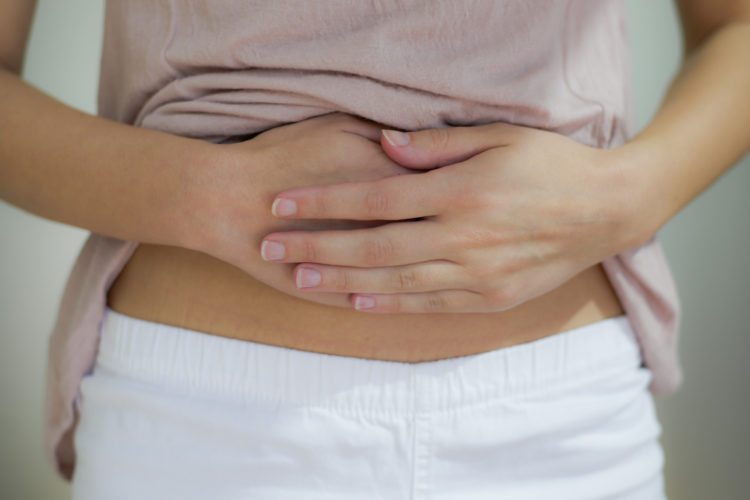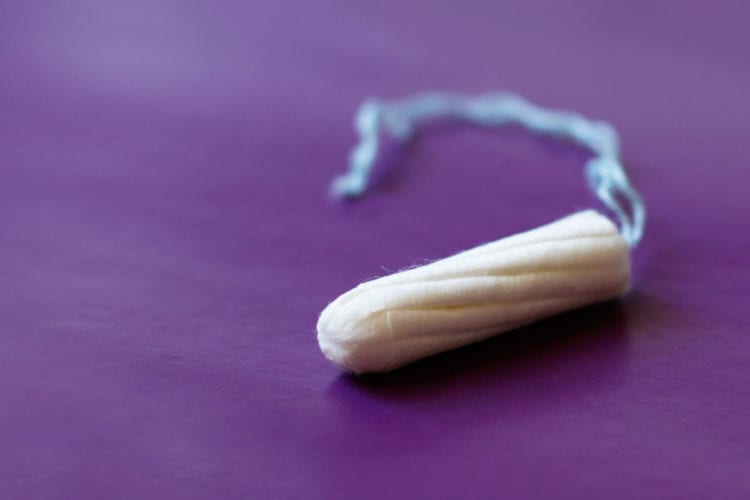7 things that could be throwing off your cycle

A woman’s average cycle is 28 days, and while some women get their periods like clockwork each month, there are many women who do not. If you’re part of the latter camp, there’s no need to be alarmed. It turns out our menstrual cycle is pretty sensitive to change, and just because you’re not getting your period on the dot doesn’t mean you should panic.
Whether you’re someone whose period is continually inconsistent or you find it comes later than you would expect some months, it’s important to know what could have an impact on your cycle. Here are seven things that could be throwing off your cycle and when you should actually be concerned.
1. Stress
All that worrying about work, family and paying the bills can have an effect on your body. “Stress manifests itself throughout the body, from pimples to weight gain to menstrual cycle changes,” says gynecologist Molly Shields, MD. “A woman’s period can be delayed or even stop completely. This condition, known as secondary amenorrhea, is the body’s natural reaction to a stressful environment.”
Basically, your body produces cortisol during times of stress, which may inhibit the production of hormones needed for ovulation. Doing stress-relieving activities such as yoga or meditation can help ensure your stress doesn’t get out of hand and affect your hormones.
2. Extreme Changes In Your Diet
Gaining or losing too much weight, especially as a result of anorexia nervosa, bulimia or other eating disorders, can cause a delayed period. “These changes send your body into preservation mode,” says Shields. “There may be a decrease in the hormones released by your brain which control ovarian estrogen production. As a result, your menstrual cycle may be longer than usual, or in extreme cases of anorexia or excessive exercise, stop altogether.”
3. Polycystic Ovarian Syndrome
It’s very common for women with Polycystic Ovarian Syndrome, also known as PCOS, to have irregular periods. “PCOS causes high levels of androgens (male hormones), which can interrupt ovulation, and hence can effect normal menses,” says gynecologist Kecia Gaither, MD. A doctor can give you an exam to test you for PCOS and can help give you a comprehensive plan to balance your periods and keep them more normal.
4. Lack Of Sleep
Most of us don’t get enough sleep, and it should come as no surprise that this unhealthy habit can wreak havoc on your menstrual cycle. “Not getting enough sleep can affect melatonin levels, which also can affect your menstrual cycle,” says gynecologist Christine Greves. Keeping a regular sleep schedule can help keep your period on track.
5. Certain Medications
“Some medications affect the frequency and flow,” says Greves. “Some examples include some antipsychotics, antidepressants, anti-emetics, and even antihypertensives because they can affect the prolactin level, which affects our menstrual cycle. Also, an IUD, aka intrauterine device, can affect the frequency and flow depending on whether it has hormones or not.”
6. Thyroid Issues
“Your thyroid helps to regulate your menstrual cycle,” says Gaither. “For example with hypothyroidism—or underactive thyroid—the hormone called prolactin is elevated, which suppresses ovulation. Woman may have light, irregular periods or no period at all.” This is often accompanied by weight gain, fatigue, hair loss and more.
7. Travel
Jet lag can do more than just mess with your sleep cycle—it can mess with your menstrual cycle, too. “Many of the body’s functions follow cycles, with one hormone responding to another,” says Shields. “If these cycles fall out of sync—for example, during a period of time when you cross several time zones—it can affect hormone production, which can ultimately lead to a change in your menstrual cycle.”
If you have an irregular period here and there, it’s usually no big deal. But if you find that your periods are consistently off, consult with your doctor, who can help find the root of your issue.












